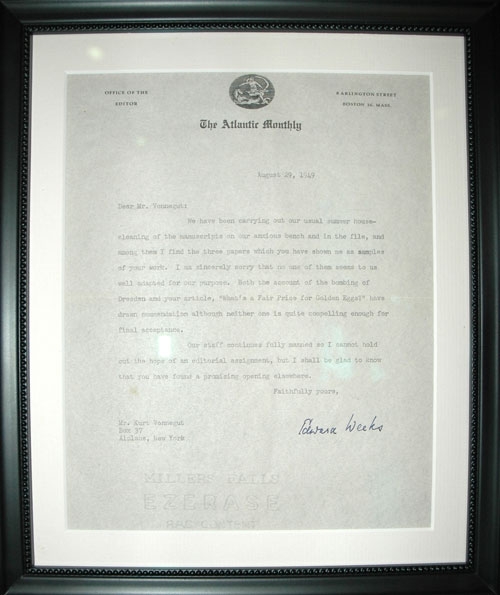Reading through Flavorwire’s recent list of The 25 Greatest Epigraphs in Literature, and being generally in the habit of stealing, I got to thinking: where else might epigraphs be of use? Traditionally, they help establish the tone of a book or introduce the reader to its main ideas. And aren’t there countless inaugural moments in any given day, the brief beginnings of some larger task, that could benefit from a quick, pithy introduction?
So I took a couple of my favorite epigraphs from Flavorwire’s list and came up with some unexpected places I’d like to find them.
”When we are not sure, we are alive.” —Graham Greene
(from Reality Hunger by David Shields)
I’m inclined to start tagging this one everywhere I go. Imagine finding this quote stamped on your baby’s diaper. Or on that unopened bottle of pig’s feet you that keeps staring at you from the depths of the fridge. What about on a subway map? Or on the entrance to the subway, replacing those uninspiring indications of Uptown/Downtown? How could strategically placing this quote around town not inspire adventure?
“Fairy tales are more than true: not because they tell us that dragons exist, but because they tell us that dragons can be beaten.” —G.K. Chesterson
(from Coraline by Neil Gaiman)
I want this on my next tube of toothpaste. Anything hygienic or related to sanitation. Is my new fantasy to have Mr. Clean whisper this in my ear as I scour the bathtub? Maybe it is. Maybe I have a problem with cleaning products. It’s still a good idea.
”No one knows how to love anybody’s trouble.” —Frank Stanford
(from Look! Look! Feathers by Mike Young)
Picture this written above the entrance to your favorite bar. The whole “everybody knows your name” Cheers vibe is so 1987. And while young drinkers might get nostalgic because Cheers was was the only option in your parents' cable-free househould, the drinking scene has gone way more toward an honest acceptance of degradation and defeat. Plus, if this is posted out front, the bouncers can do whatever they want to you.
“We fill pre-existing forms and when we fill them we change them and are changed.” —Frank Bidart, “Borges and I”
(from The Pale King by David Foster Wallace)
This might be so totally obvious, but...ice cube trays! How delightful would it be to sip highballs full of Borges-inscribed ice cubes and then dance around with Buddhist-like glee! Interacting with the universe! And science! Because of the whole liquid-into-solid situation!
“Behind every great fortune there is a crime.” —Balzac
(from The Godfather by Mario Puzo)
Okay. This one I can’t really justify in any way other than to tell you I feel it in my gut. Peanut Butter. Maybe it’s something about the lush extravagance in peanut butter, its silky delight and its decadent linger in the mouth. But really, how do you feel when you sneak into the fridge at night and spoon some up? Like a criminal.
Image: supertouchart.com

















 A Black Balloon Publication ©
A Black Balloon Publication ©